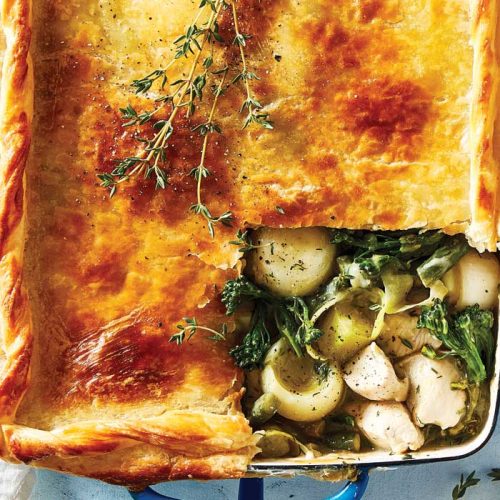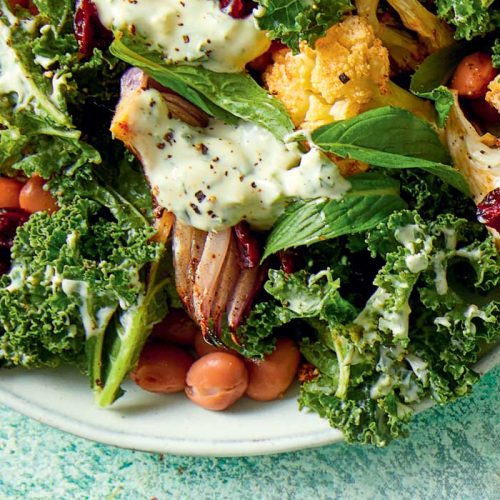
Healthy Food Guide dietitian Melissa Meier shares the pros and cons of between-meal snacks to see whether or not we really need to snack.
Are you are an all-day grazer, or do you stick to three square meals? Snacks tend to cop a bit of a bad rap. As we all know, chips, chocolate and biscuits aren’t the best choice, yet over a third of the average kilojoule consumption comes from eating these ‘discretionary’ foods. It’s clear we’re doing something wrong — but does that really mean we need to boycott snacking altogether, or should we simply change the way that we think about snacking? Here are both sides of the snacking story.
In defence of snacking …
Snacking can help balance your blood sugar levels
A healthy, well-portioned snack that contains good-quality carbohydrates provides long-lasting energy to get you through a busy morning or afternoon. This steady supply of fuel to your brain and muscles helps you to maintain focus and concentration forlong periods of time.
Snacking can help you hit your daily nutrient targets
Many people fall short of their daily fibre and/or calcium requirements, and the vast majority of us don’t eat enough fruit and vegetables. Snacking is therefore the ideal opportunity to focus on boosting your nutrition with foods such as fruit, vegetables, whole grains, yoghurt, nuts and seeds.
Snacking can help you manage hunger
There’s nothing worse than a loud, grumbling tummy. Not only can it be distracting and make you feel irritable — it could drive you to make poor food choices and to overeat at your next main meal. Enjoying a well-portioned snack, without overdoing it, can help keep those hunger pangs at bay.
The downside of snacking …
Snacking can leave you feeling sluggish
Highly processed snack foods offer a quick burst of energy and can send your blood sugars on an uncomfortable rollercoaster ride. This leaves you feeling lethargic, which makes you reach for more of the same quick-energy foods, and the cycle starts again.
Snacking can spike your intake of sodium, sugar and saturated fat
The ultra-processed foods that give snacking a bad name (like pastries, salty crackers and lollies) aren’t a big deal when consumed occasionally and in moderation, but their ‘negative nutrients’ can cause health issues down the track if consumed regularly.
Snacking can lead to unwanted weight gain
Regardless of what you snack on, eating too much too frequently can add hundreds — if not thousands — of extra kilojoules to your day and lead to weight gain over time. If you don’t need to gain weight, that might become a problem for you.
The verdict on snacking
Whether you should snack or not snack depends entirely on you as an individual. Your lifestyle and your life stage are important factors, as are your personal preferences and eating habits. If you are a snacker, it’s important you remember that snacks are just snacks — not mini meals — and they should be made up of nutritious whole foods. If you’re not a snacker, pay careful attention to your main meals, ensuring they are nutrient-dense and contribute foods from the major food groups.
Healthy snack checklist
Portion wise a healthy snack is ideally about 600kJ–800kJ (150cal–200cal) and will contain at least 3g fibre, and/or at least 5g protein per serve.
5 healthy snacks
1 Go nuts
1 slice of soy–linseed toast with 1 tsp peanut butter
544kJ (130cal), 5.4g protein, 3g fibre
2 Keep the doctor away
1 apple
398kJ (95cal), 0.5g protein, 3.7g fibre
3 Crunch on kale
Homemade kale chips made by baking 2 cups kale sprayed with olive oil
436kJ (104cal), 3.7g protein, 6.2g fibre
4 Veg it up
1 cup crudités served with 2 tbs hummus
544kJ (130cal), 3.6g protein, 4.4g fibre
5 Berry nice
A small tub of plain yoghurt and ¼ cup blueberries
637kJ (152cal), 9.2g protein, 0.7g fibre
www.healthyfood.com










